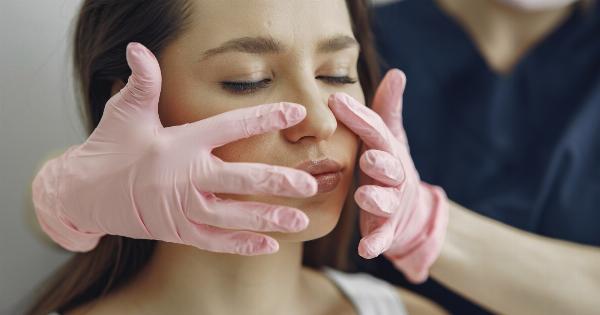Winter is here, and the cold weather can take a toll on your skin. The cold air, low humidity, and indoor heating can cause your skin to become dry, flaky, and itchy.
If you want to keep your skin healthy and glowing during the winter season, you need to take extra care of it. Here are ten tips to keep your skin safe from the cold.
1. Moisturize regularly
The key to keeping your skin hydrated during the winter is to moisturize regularly. Choose a rich moisturizer that contains ingredients like shea butter, glycerin, and hyaluronic acid.
Apply the moisturizer to your face and body immediately after taking a shower or bath to lock in moisture. Don’t forget to moisturize your hands, lips, and feet, which are prone to dryness.
2. Use a humidifier
Indoor heating can make the air inside your home dry, which can lead to dry skin. To add moisture to the air, use a humidifier. A humidifier can help to keep your skin hydrated and prevent it from becoming dry and flaky.
You can also add essential oils, like lavender or eucalyptus, to the humidifier for added benefits.
3. Drink plenty of water
Staying hydrated is essential for healthy skin. So, make sure you drink plenty of water throughout the day. Water can help to flush out toxins from your body and keep your skin moisturized from the inside out.
Try to drink at least eight glasses of water a day, and if you find it hard to drink plain water, add some flavor to it by infusing it with fruits or herbs.
4. Avoid hot showers
We know that a hot shower feels great on a cold day, but it can be damaging to your skin. Hot water can strip your skin of its natural oils, making it dry and irritated. So, when you shower or bath, use lukewarm water instead of hot water.
Also, limit your shower time to no more than 10-15 minutes to prevent your skin from becoming too dry.
5. Wear protective clothing
The cold weather can be harsh on your skin. To protect your skin from the cold, wear protective clothing, such as a scarf, gloves, and a hat. These accessories can help to prevent your skin from chapping and becoming dry.
6. Exfoliate gently
Exfoliating can help to remove dead skin cells from the surface of your skin and make it look smooth and shiny. However, during the winter, you need to exfoliate gently to avoid irritating your skin.
Use a gentle exfoliator that contains natural ingredients like sugar or oatmeal. Also, limit your exfoliating to once a week to prevent your skin from becoming too dry or sensitive.
7. Use sunscreen
Just because it’s winter doesn’t mean you should skip sunscreen. The sun’s harmful UV rays can penetrate through the clouds and reach your skin even on a cloudy day. So, use a broad-spectrum sunscreen with an SPF of at least 30.
Apply the sunscreen to your face, hands, and other exposed areas of your skin when you’re going outside, especially during the winter sports season.
8. Invest in a good lip balm
Your lips are one of the most sensitive areas of your skin, and they can become dry and cracked during the winter. To prevent your lips from becoming dry and chapped, invest in a good lip balm.
Look for a lip balm that contains natural ingredients like beeswax, coconut oil, and shea butter. Apply the lip balm throughout the day to keep your lips moisturized.
9. Eat a healthy diet
What you put into your body reflects on the outside, and that includes your skin. To maintain healthy skin during the winter, eat a healthy diet that’s rich in vitamins and nutrients.
Eat foods that are high in antioxidants, like berries, leafy greens, and citrus fruits. Also, eat foods that are rich in essential fatty acids, like salmon, avocado, and nuts.
10. Don’t forget about your feet
Finally, don’t forget to take care of your feet during the winter season. Your feet can also become dry and cracked due to the cold weather and indoor heating.
Keep your feet moisturized by applying a rich foot cream that contains ingredients like shea butter and urea. Also, wear socks to keep your feet warm and dry.
By following these ten tips, you can keep your skin healthy and glowing during the winter season. Remember, the key to healthy skin is to keep it hydrated, protected, and nourished.































